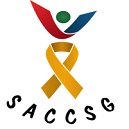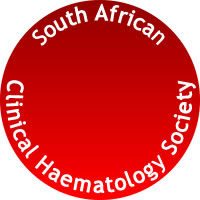Original Research
Radiotherapy teaching during COVID-19: An emergency teaching response
Submitted: 10 October 2022 | Published: 08 December 2022
About the author(s)
Hester Burger, Department of Radiation Medicine, Faculty of Health Sciences, University of Cape Town, Cape Town, South Africa; and, Medical Affairs Division, Varian Medical Systems, Cape Town, South AfricaNanette Joubert, Department of Radiation Medicine, Faculty of Health Sciences, University of Cape Town, Cape Town, South Africa
Bridget Wyrley-Birch, Department of Medical Imaging and Therapeutic Sciences, Faculty of Health and Wellness Sciences, Cape Peninsula University of Technology, Cape Town, South Africa
Natalia Vowles, Department of Medical Imaging and Therapeutic Sciences, Faculty of Health and Wellness Sciences, Cape Peninsula University of Technology, Cape Town, South Africa
Antonella Fogliata, RadiQa Developments, Bellinzona, Switzerland; and, Humanitas Research Hospital, Milan-Rozzana, Italy
Theresa Binz, Planning for Africa, Abu Dhabi, United Arab Emirates
Jeannette D. Parkes, Department of Radiation Medicine, Faculty of Health Sciences, University of Cape Town, Cape Town, South Africa
Abstract
Background: The coronavirus disease 2019 (COVID-19) pandemic resulted in more than six million deaths in the first two years, a third of the estimated number of cancer-related deaths during this time. It directly impacted radiotherapy training in Africa.
Aim: This study evaluated the changes applied to the Access to Care Cape Town Radiotherapy training programme during the pandemic.
Setting: The training platform prior to March 2020 was used as a baseline and compared with the programme status in January 2022, representing the emergency teaching model.
Methods: Five themes were investigated: computer hardware and software changes; e-Learning resources; programme and curriculum changes; challenges experienced and alignment with modern medical education principles.
Results: Reconfiguration of the computer laboratories was required, including additional computer monitors, web cameras and headsets, as well as installation of screen recording and teleconferencing software. The EclipseTM radiotherapy treatment planning laboratory was reconfigured for remote student access, with simultaneous monitoring by local assistants. Online learning was augmented by adding the University of Cape Town VulaTM system as resource, and courses restructured for delivery of short blocks. Five new courses were developed, including collaborations with international training partners, showing good alignment with the principles of modern medical education.
Conclusion: Reconfiguration was performed at a manageable cost but required a high level of information technology support. Connectivity and bandwidth issues remain a challenge, as well as online engagement.
Contribution: Despite these challenges, the virtualisation allowed for continued training between March 2020 and December 2021, with 18 departments attending remote teaching courses.
Keywords
Metrics
Total abstract views: 1467Total article views: 1572



